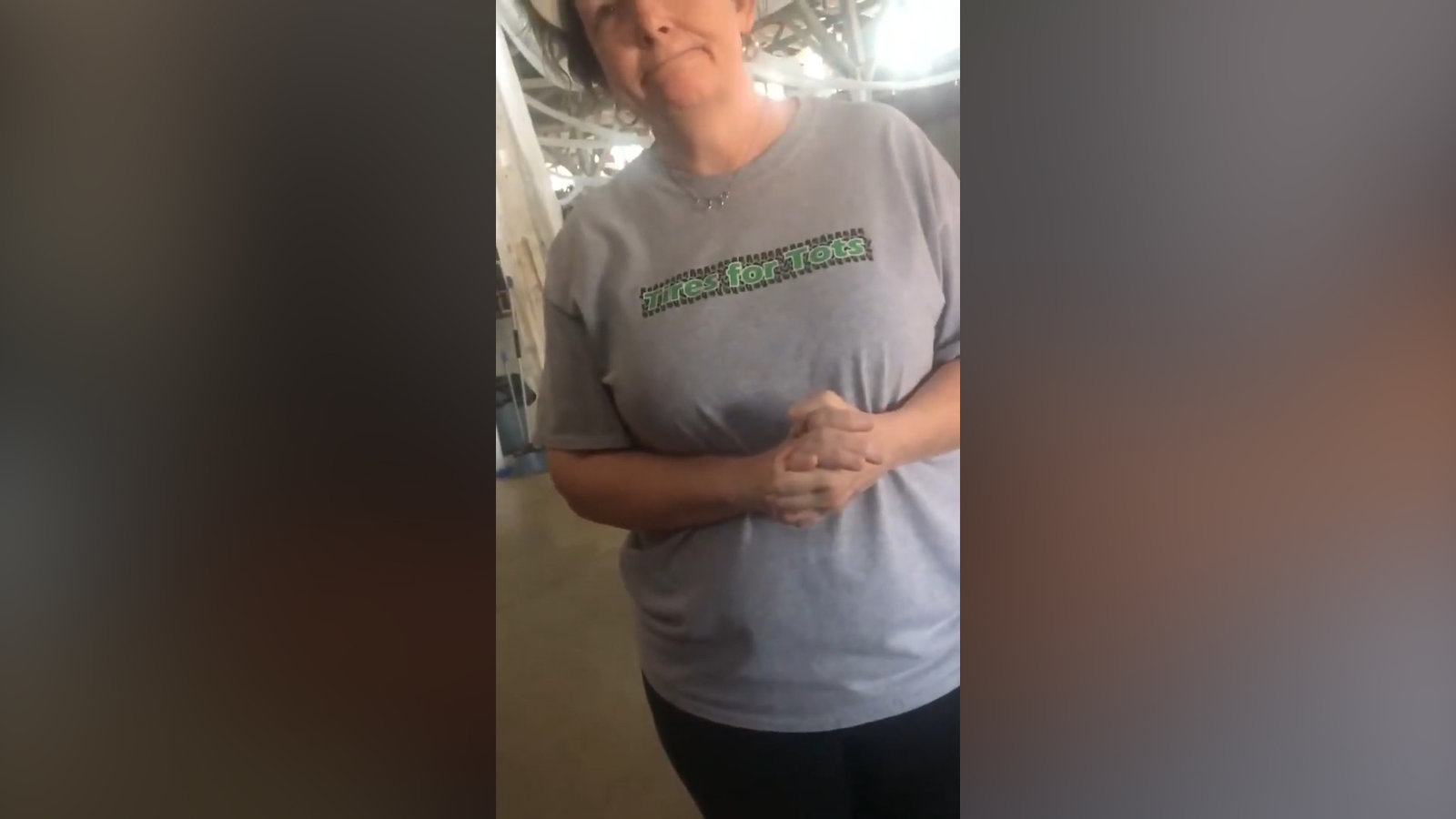
The owners of an event hall in northeastern Mississippi apologized on Tuesday for refusing to host a wedding for an interracial couple — an exchange captured in a widely viewed video — saying that they incorrectly believed that interracial marriage went against their Christian beliefs.
The sister of the groom, LaKambria Welch, said her brother, who is black, and his fiancée, who is white, had been in touch for about a week with Boone’s Camp Event Hall in Booneville, Miss., about having their wedding there. But then the couple received a message, according to Ms. Welch, that said that they could not proceed because of the owners’ personal beliefs.
Ms. Welch, 24, said she went to the venue with her mother on Saturday to inquire about the refusal. She filmed part of the interaction she had with a woman at the venue and posted the video on Facebook, where it drew widespread condemnation.
“We don’t do gay weddings or mixed race, because of our Christian race, I mean our Christian belief,” the woman told Ms. Welch in the video.“I don’t want to argue my faith, we just don’t participate.”
Ms. Welch said that she was shaken by the episode.
“It really broke my heart to actually hear her say those things,” Ms. Welch said.
She added that Donna Russell, the owner of the event hall, had apologized privately, and that Ms. Welch and her family had accepted the apology.
Boone’s Camp Event Hall said in a statement on Tuesday that the owners had previously been taught to believe that “interracial marriage was against the teachings of the Bible.” The owners realized they were wrong after they consulted with their pastor and others, the statement said.
“Boone’s Camp is sorry for the pain and inconvenience they have caused this couple and have invited them to use the facility,” the statement said.
The video was first reported by Deep South Voice, a news and commentary site, by the site’s founder, Ashton Pittman.
The United States Supreme Court overturned bans against interracial marriage in Loving v. Virginia in 1967. Federal law prohibits race-based discrimination in public accommodation.
In 2016, Mississippi passed a law that affords special protections to opponents of same-sex marriage, which the Supreme Court had ruled was a constitutional right the previous year.
The law shields individuals and organizations who act in accordance with their “sincerely held religious beliefs or moral convictions” about marriage and gender from potential government actions. It allows them to make decisions according to those beliefs in hiring, real estate, wedding services and foster care, among other situations, but it does not mention race or ethnicity.
The Human Rights Campaign, a nonprofit that supports L.G.B.T.Q. rights nationwide, called it “the worst anti-LGBTQ state law in the U.S.” It was blocked by a federal judge, but upheld on appeal.
As the Booneville video spread on social media, the city issued a statement on its Facebook page, writing that the city, mayor and board of aldermen “do not discriminate on the basis of race, religion, gender, age, national origin, disability, marital status, sexual orientation, or military status.” Some commenters were not satisfied, and called for the officials to more forcefully condemn the comments.
“Religion should never be exploited as a license to discriminate,” Alphonso David, the president of the Human Rights Campaign, said in a statement Tuesday. “This incident is yet another glaring example of how white supremacy and anti-LGBTQ bigotry are not merely things of the past. We must take action against these blatantly illegal practices.”
Joshua Tom, legal director and interim director of the American Civil Liberties Union of Mississippi, said that religion “should never be used as a license to discriminate.”
“It is repugnant to refuse service to one of our fellow Mississippians because they love someone of the same sex or of a different race,” Mr. Tom said. “It also violates federal law and the U.S. Constitution.”
Ms. Welch declined to provide the names of her brother or his fiancée, saying they wanted to protect their privacy. Many other venues had reached out to the couple after the video received widespread media attention, Ms. Welch said.
Mihir Zaveri contributed reporting







